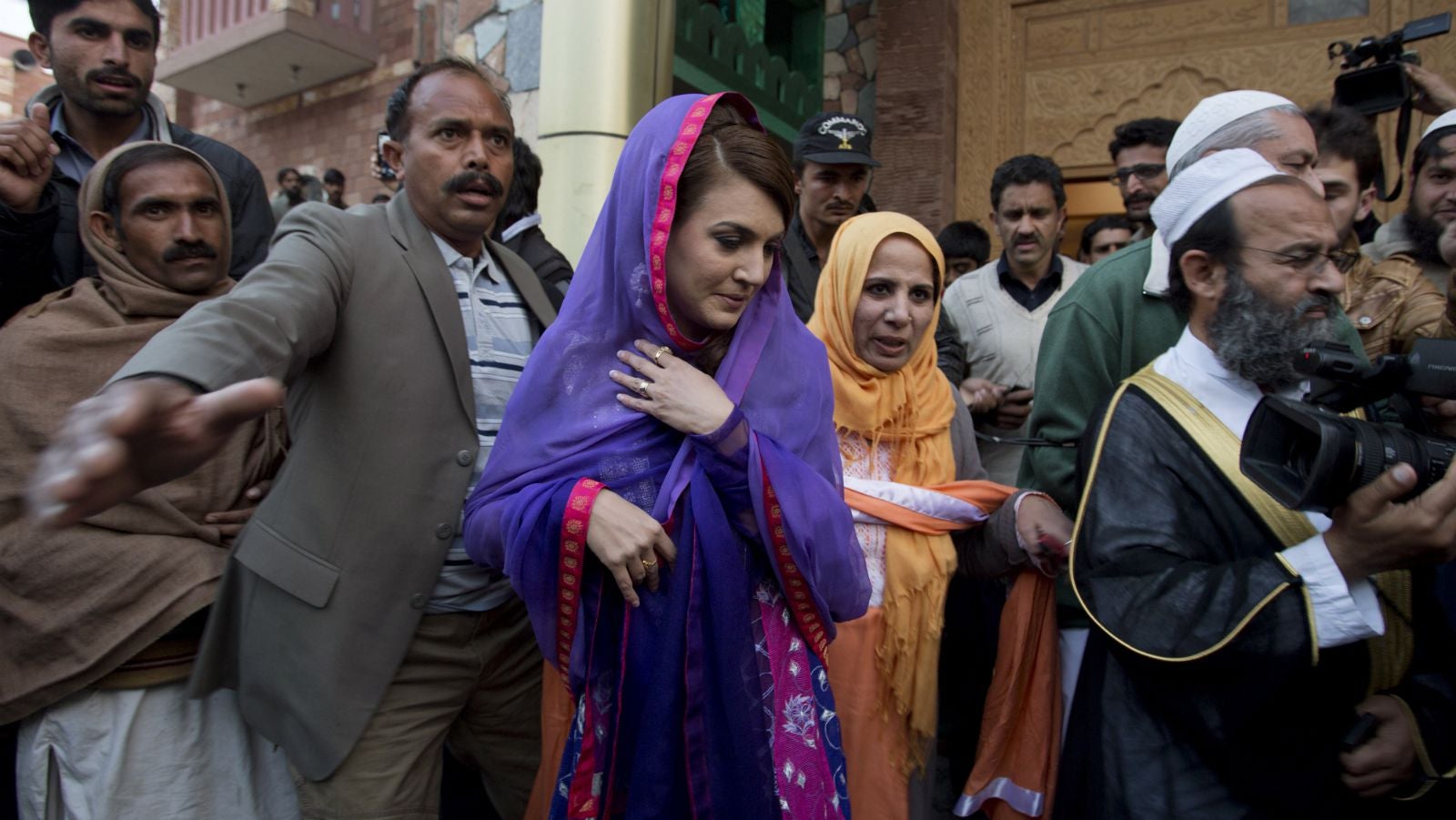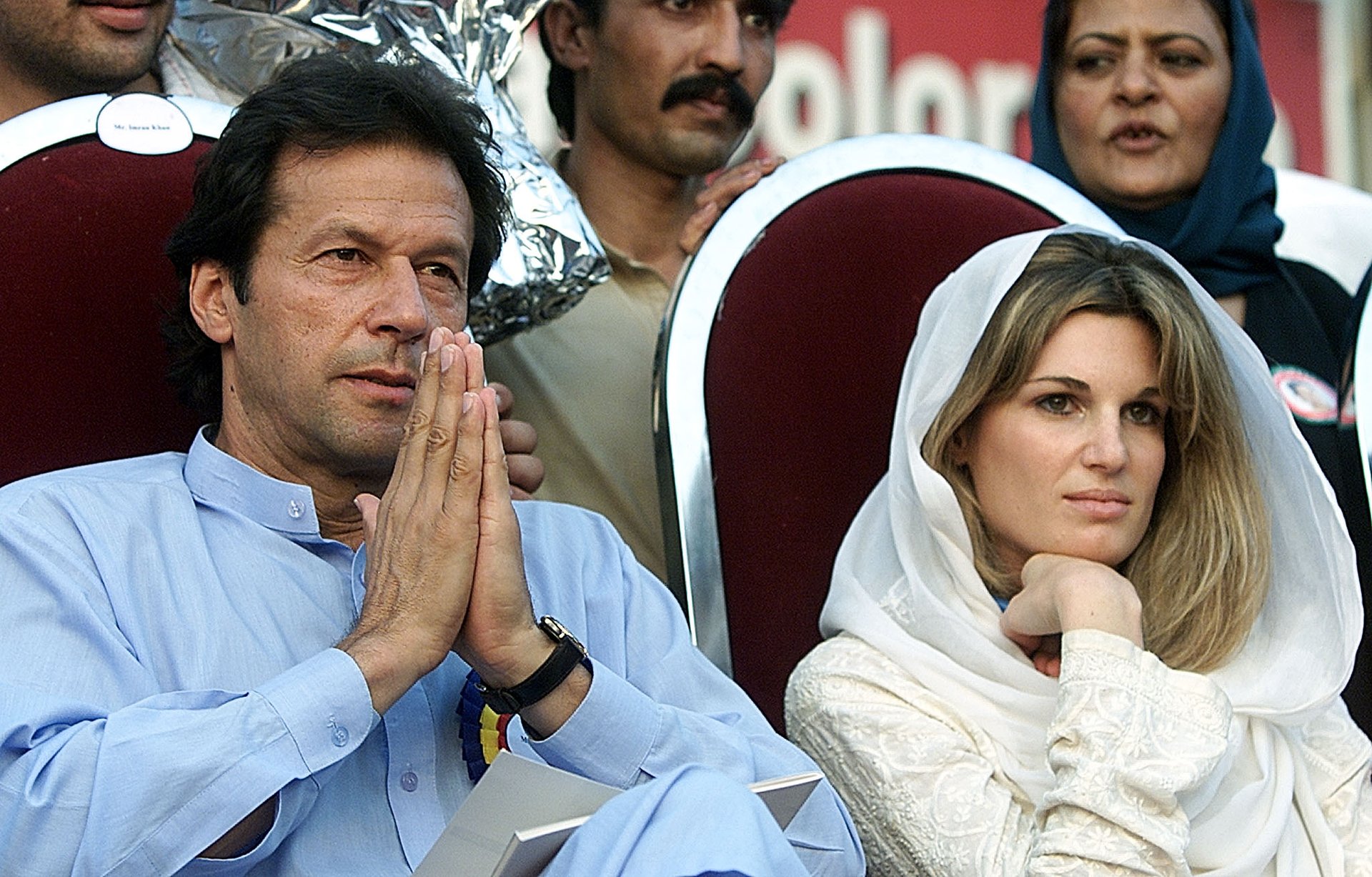Imran Khan’s wife’s short skirt is causing more outrage in Pakistan than Charlie Hebdo
Pakistan experienced its own version of the royal wedding when the country’s best looking cricketer-turned-politician, 62-year-old Imran Khan tied the knot with former BBC journalist Reham Khan on Jan. 8. Local TV channels broke into a frenzy as they tried to outdo each other while covering every aspect of the wedding—from the menu and the groom’s ill-fitting choice of footwear to speculation about the future role of Mrs Khan in her spouse’s political career.


Pakistan experienced its own version of the royal wedding when the country’s best looking cricketer-turned-politician, 62-year-old Imran Khan tied the knot with former BBC journalist Reham Khan on Jan. 8. Local TV channels broke into a frenzy as they tried to outdo each other while covering every aspect of the wedding—from the menu and the groom’s ill-fitting choice of footwear to speculation about the future role of Mrs Khan in her spouse’s political career.
Social media took things even further as the hashtags #ImranwedsReham and #MerayKaptaanKiShadiHay started trending and the debate about who is the real “catch” in the union picked up momentum. Nadeem Farooq Paracha, a journalist and writer, dubbed the coverage of the wedding by the local media as “crass and at times downright silly.”
“Unfortunately responsibility and the electronic media are still at loggerheads in the country,” he added.

However, given Pakistani media’s historical fascination with Khan’s playboy aura, their fixation with his matrimonial proceedings was no surprise. Khan’s first marriage to English journalist and heiress Jemima Goldsmith in 1995—a partnership that lasted nine years before the two parted ways since it was difficult for Goldsmith to adapt to life in Pakistan—had also sparked similar curiosity and excitement at the time. Khan’s decision to keep his personal life private despite being a media darling for over two decades provided the press with further impetus to fill the missing gaps in information with gossip, speculation and sensationalism.
The only thing different the second time around was that instead of a handful of channels indulging in this hype, now it was three dozen channels (that had sprung up after the media boom in Pakistan during Musharraf’s era) competing for ratings and the most shocking scoop on the couple. Anyone watching news on TV channels in Pakistan during those few days could have never guessed that a massacre in Nigeria had claimed thousands of lives—or how all of Europe had been shaken up by an attack on the offices of the French satirical magazine Charlie Hebdo that left 12 people dead.
The wedding bells had drowned out everything. Even tragedy at home. Less than a month ago, the nation had received one of its worst blows when the Taliban attacked an army-run school in Peshawar and killed 132 children—a fact that Khan was painfully reminded of when he paid a visit to the school with his new wife three days after it re-opened and was met with hostility and chants of “Go Imran, Go“ by angry parents.
“Imran Khan was busy with his wedding ceremony while we were weeping for our children,” a mother of one of the deceased children told The Express Tribune.
However, it was Khan’s new wife, who was a target of the most visceral comments online.
Those who were angered, disappointed and suspicious of the controversially timed wedding largely outnumbered the well-wishers for the couple. The fact that Reham was much more relatable compared to Goldsmith, having been born to Pakistani parents in Libya, didn’t really ease the media scrutiny either.
Everything from the 41-year-old’s relationship with her first husband (whom she married at the age of 19 and soon divorced due to alleged domestic abuse and differences over her career) to her upbringing of the three children from her first marriage and choice of clothes was dragged into the public eye and ripped apart.
Being a divorcee and a working woman—things that the average Pakistani woman still struggles with—raised questions about her “honour” and suitability as a life partner for the widely revered Khan. However, what was most surprising was that this misogynistic attitude towards Reham was not just limited to the usual suspects, but could even be traced to women and the otherwise usually liberal urban elites as well.
According to The Daily Mail, internet trolls had even gone as far as labelling her a lesbian based on a picture of her stroking another woman’s back and claimed to be in possession of images of her in a sex shop in the UK, where she is seen in a pink nightdress with a collar around her neck and a whip slung over her shoulder.
A 2011 footage of Reham handling and cooking pork sausages at a fair in West Sussex was widely circulated on the internet. Touching or eating pork is forbidden under Islamic laws, and Reham faced a steady stream of criticism after the clip resurfaced.
Old pictures of Reham wearing knee-length dresses and speculation about the timing and motives of her relationship with Khan also began circulating on at least two Facebook groups.
These comments reportedly left Reham, who now works as an anchor for a prime time TV show on one of the leading channels in Pakistan, very disturbed.
Surprisingly, even though this was also Khan’s second marriage, he has been spared of the same personal scrutiny and backlash at home. These double standards were natural given that Reham was a woman in a staunchly patriarchal society and consequentially a soft target.
However, given how Khan has mainstreamed previously opaque concepts such as democracy, accountability and voter rights for a large section of the Pakistani population in the past, one hopes he will extend the same consideration to gender biases and stereotyping in his “Naya Pakistan”—New Pakistan—as well.
We welcome your comments at [email protected].